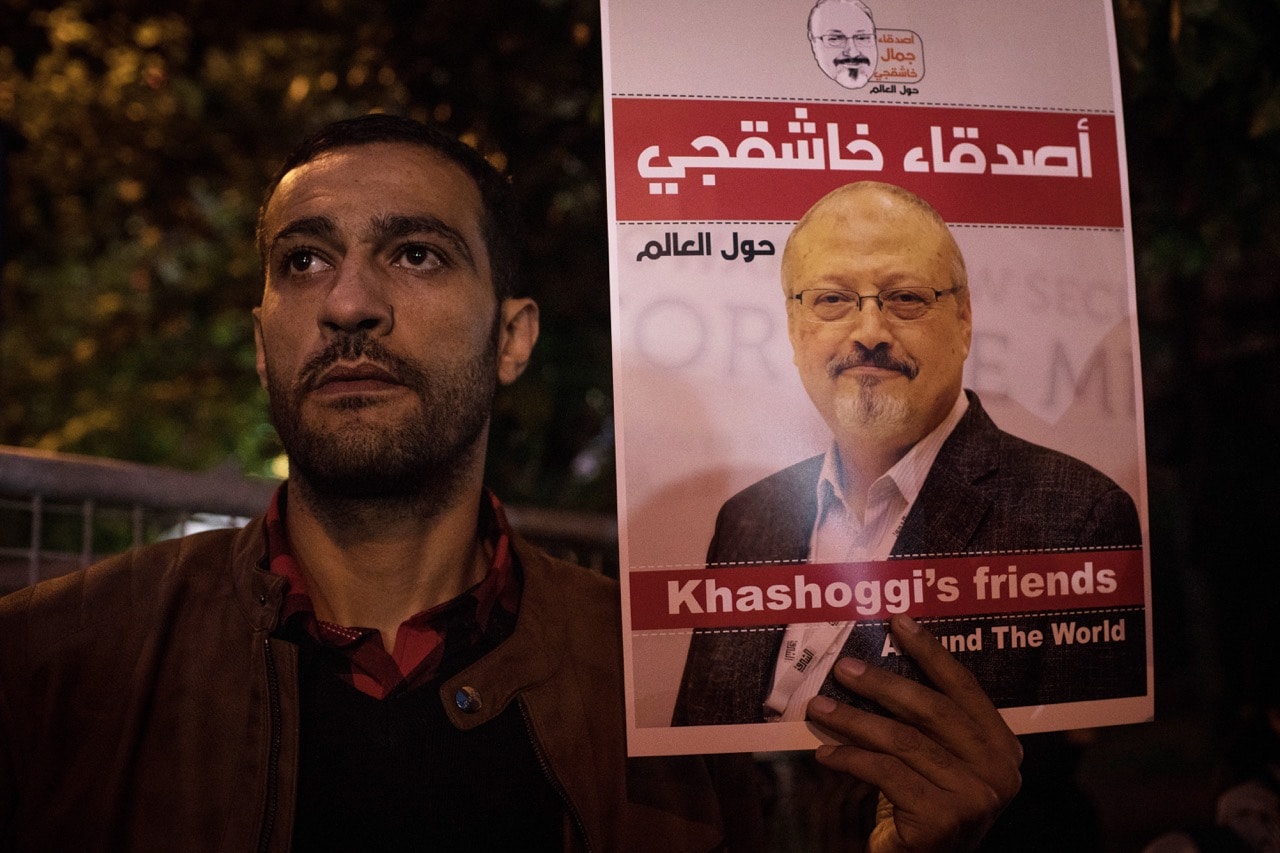Impunity for crimes against journalists is becoming a "new normal"; legal protections for critical, investigative reporting have been weakened both offline and online.
This statement was originally published on article19.org on 12 February 2019.
Press freedom in Europe is more fragile now than at any time since the end of the Cold War. That is the alarming conclusion of a report launched today by the 12 partner organizations of the Council of Europe Platform to promote the protection of Journalism and safety of journalists.
The report, Democracy at Risk, analyses media freedom violations raised to the Platform in 2018. It provides a stark picture of the worsening environment for the media across Europe, in which journalists increasingly face obstruction, hostility and violence as they investigate and report on behalf of the public.
The 12 Platform partners – international journalists’ and media organisations as well as freedom of expression advocacy groups – reported 140 serious media freedom violations (“alerts”) in 32 Council of Europe member states in 2018. This review of the alerts reveals a picture sharply at odds with the guarantees enshrined in the European Convention on Human Rights. Impunity for crimes against journalists is becoming a “new normal”. Legal protections for critical, investigative reporting have been weakened offline and online. The space for the press to hold government authorities and the powerful to account has shrunk.
Last year the murders of Ján Kuciak and fiancée Martina Kušnírová in Slovakia and Jamal Khashoggi in the Saudi Arabian consulate in Istanbul, Turkey, were among 35 alerts for attacks on journalists’ physical safety and integrity. Alerts about serious threats to journalists’ lives doubled, and were accompanied by a strong surge in verbal abuse and public stigmatisation of the media and individual journalists in Council of Europe member states.
“Urgent actions backed by a determined show of political will by Council of Europe member states are now required to improve the dire conditions for media freedom and to provide reliable protections for journalists in law and practice”, the report warns.
The purpose of the Platform, based on a 2015 agreement between the Council of Europe and the partner organisations, is to prompt an early dialogue with member states and hasten remedies for violations and shortcomings in the protections for free and independent journalism.
The Platform partners call on states that impose the harshest restrictions on journalists’ activities and freedom of expression to:
. Restore rule of law safeguards and drop charges against journalists and release them as a step towards restoring a safe and enabling environment for independent media;
. Remove extremism and other laws criminalising media and end arbitrary exercise of powers by the executive and regulators; and
. Take the necessary steps to put in place a structure of media regulation and ownership which safeguards media plurality and freedom.
In addition, the Platform partners call on all states to reply fully and in good faith to all alerts and to take effective measures in law and practice to remedy the threats to the safety of individual journalists and media.
The Council of Europe Platform was launched in April 2015 to provide information which may serve as a basis for dialogue with member states about possible protective or remedial action. While many member states responded to alerts in 2018, five states declined to respond to any alerts, including those reporting very serious media freedom violations.
The 12 Platform partners are: the European Federation of Journalists (EFJ), the International Federation of Journalists (IFJ), the Association of European Journalists (AEJ), Article 19, Reporters without Borders (RSF), the Committee to Protect Journalists (CPJ), Index on Censorship, the International Press Institute (IPI), the International News Safety Institute (INSI), Rory Peck Trust, the European Broadcasting Union (EBU) and PEN International.
The conclusions of this first annual report by ARTICLE 19 and our 11 partners are stark. Sarah Clarke, Head of ARTICLE 19’s Head of Europe and Central Asia Programme said, “Across the 47 member states of the Council of Europe and European Union violence, harassment and threats against journalists are increasingly routine, while impunity for these violations is the new normal. These attacks on the free press – which plays a central role in holding power to account – is a central contributing factor to the deterioration of democracy in the region. We urge member states to take concrete actions to fulfil their legal obligations to protect journalists and the free press. This includes repealing repressive legislation, fostering media plurality, providing protection for journalists at risk and thoroughly investigating crimes against journalists. Doing so is essential to protecting European values of democracy and freedom of expression.”
